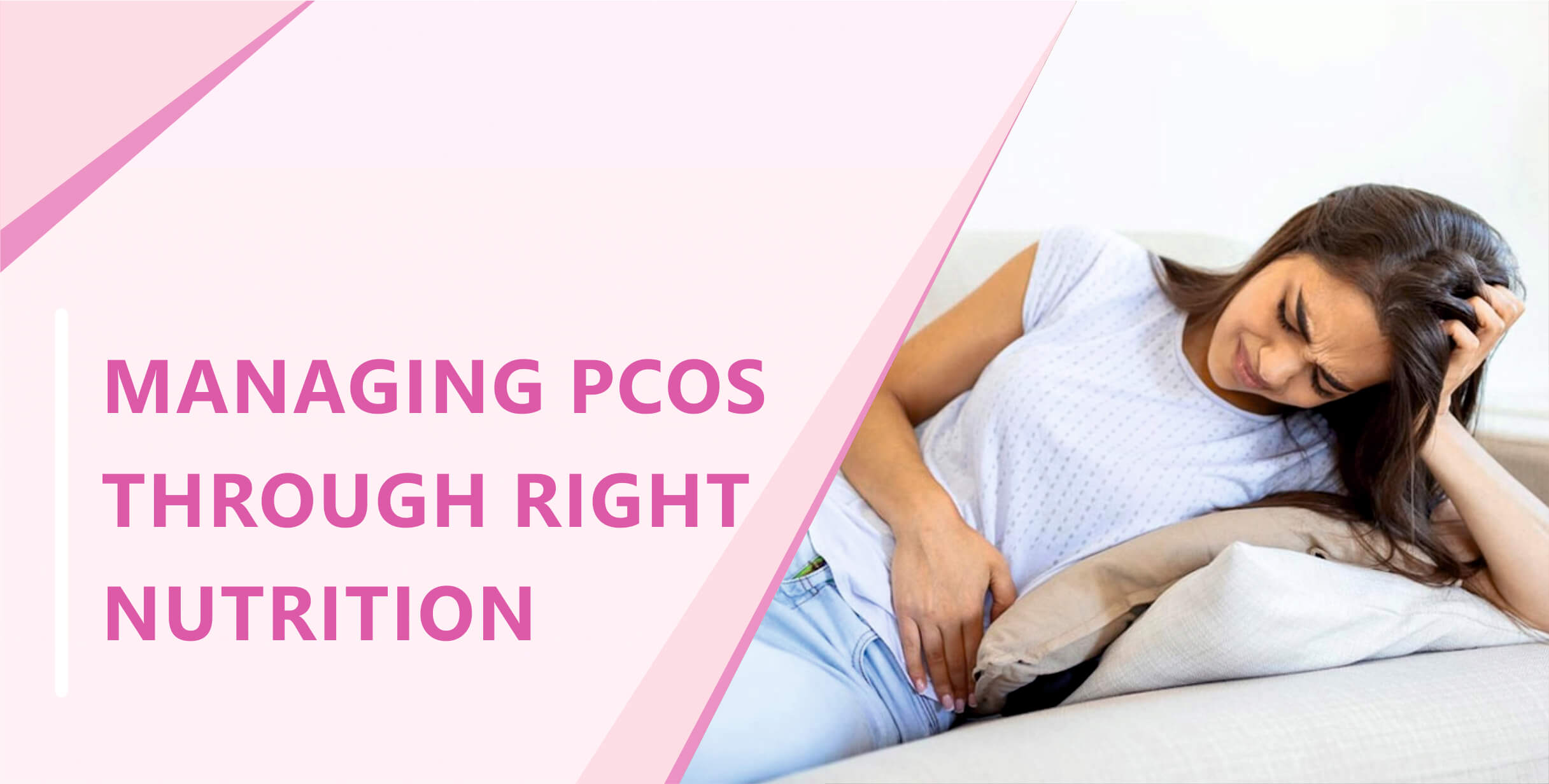Polycystic ovary syndrome or PCOS, is a set of symptoms related to a hormonal imbalance that can affect women and girls of reproductive age. PCOS may cause menstrual cycle changes, skin changes such as increased facial and body hair and acne, cysts in the ovaries, and infertility. Lifestyle changes are the key to reversing PCOS. Losing weight by eating clean and getting regular exercise will not only reduce insulin and androgen levels, it will also restore normal ovulation and improve the odds of pregnancy.
Following are some methods by which PCOS can be controlled:
Focus on low glycemic index (see table below): Low GI foods (refer list below) can improve and help balance insulin levels, women with PCOS are often resistant to the effects of insulin, and therefore have more insulin in their blood. This rise in insulin levels means the levels of testosterone are also increased. The increase in both insulin and testosterone upsets the natural hormone balance in the body, often causing symptoms to flare up.
Include good quality proteins: Focusing on good quality protein such lean meats, nuts and seeds will keep your blood sugar levels optimum and will make you crave lesser for sweets.
Focus on Essential fatty acids healthy fats: Unsaturated fats are essential in managing the symptoms of poly-cystic ovary syndrome as they help to re-balance hormones, manage weight and can help with fertility. You can include ‘Healthy’ fats in the form of virgin coconut oil, desi ghee, avocado, flax seeds, chia seeds, almonds, walnuts etc.
Limit intake of refined carbohydrates: Refined carbohydrates such as white breads, muffins, pastries anything made with flour will spike the blood glucose instantly leading to weight gain and worsen symptoms of PCOS.
Source it right: Nowadays, whether its milk or chicken, its generally injected and fruits and vegetables are loaded with pesticides, thus it’s important to source your food from the right sources, for e.g. milk from Indian humped cows- A2 milk, country chicken instead of broilers and look for seasonal and local fruits and vegetables instead of imported fruits and vegetables.
Include some form of exercise daily: Exercising for 180 mins/week can help to reduce insulin resistance, especially when coupled with a limited intake of refined carbohydrates. For e.g. Yoga, swimming are some of the best form of exercises.
Focus on Vitamin B12 food sources: Most people with PCOS are deficient in this vitamin. Vitamin B12 is very essential as it is involved in weight control. Sources: Sea food (clams, oysters, mussels), salmon, yogurt, milk, eggs, chicken etc.
Focus on chromium, selenium and zinc rich foods: These minerals are very important as chromium plays an important role in insulin signaling, selenium and zinc helps to control blood glucose levels and prevent diabetes.

